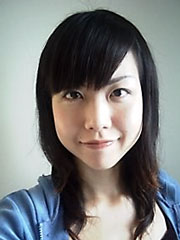hanaco(稲井華子)Hanako Inai

© Hanako Inai
Hanako Inai is a food stylist known as “hanaco“. Born in Nagasaki in 1974. After graduated from UCLA in Economics, she moved to Tokyo, building her career through various experiences including working at a major telecommunication firmフードスタイリストとして東京を拠点に活動するhanaco(稲井華子)さん。長崎県に生まれ、高校で渡米、ブラジルとキプロスへの食留学、都内フレンチレストランにて修行を積み、フリーのフードスタイリストに。現在は国内外にての様々な食経験を生かし、食にまつわる様々なジャンルで活躍中だ。
![]()
![]()
お仕事の内容について教えください。
![]()
「フードスタイリスト=撮影の際に食べ物を美しく見せる職業」だと思われがちですが、フードスタイリスト歴5年目の私の勝手な定義は、食に関する全般を請け負う「食の何でも屋」です。国内外にての様々な食経験を生かし、現在は東京を拠点にフードライターや料理講師、レシピ/メニュー制作、ケータリングなど色々とやらせていただいています。
![]()
![]()
アメリカで生活をしていたそうですが、そこで何を学びましたか?
![]()
当初は16歳からの1年間を交換留学生としてアメリカに滞在する予定でしたが、最終的には計7年間の学生生活をニューヨーク州とカリフォルニア州で送りました。
アメリカの家族や友人たちを見て思う事は様々な面において合理的な生き方をしているなと言うことです。一番多感な時期に渡米してしまったので、10代の頃は自分のアイデンティティーが確立できず、合理性が感じられない日本人的思考を否定し続けました。しかし、各国から訪れる交換留学生と出会い、自身でも色々な国を訪れることによって、アメリカの良さ、日本の良さをバランス良く取り入れる術を学びました。あと、良い意味での独立心の強さも身に付ける事が出来ました。アメリカを始め、欧米では家族をとても大切にしますが、頼りすぎません。義務教育が終わると金銭面においても独立します。日本では学費は親が出して当たり前、社会人になってもお小遣いをもらったりする事もあると聞いてちょっと驚きました。
![]()
![]()
現在は拠点を東京にされているそうですが、東京と比べ福岡の食文化や飲食店の傾向について、どう思いますか?
![]()
私は生まれてからの16年間を長崎県で過ごしたのですが、祖母や親戚が福岡に住んでいたので一時帰国の際は福岡にステイすることが多く、程なくして家族も長崎から福岡へと引っ越しました。就職を日本で決めたので、社会人になってからは東京が拠点となりましたが、福岡は大好きで年に2度は家族に会いに福岡へ帰ります。福岡と言うと、もつ鍋やラーメンのイメージが強いと思うのですが、大名や薬院には各国料理のレストランも多く、イタリアンのレベルも非常に高いです。少し郊外へ足を延ばすと有機野菜のみを使った料理が供されるレストランでしたり、地場の新鮮な魚を使った郷土料理のお店など地方でしか出来ないスタイルのお店もあって地産地消の取り組みも推進されていると感じます。
![]()
![]()
生活や仕事をする上で、東京と福岡の違いについて教えてください。
![]()
個人的には東京で生活をするのも福岡で生活をするのも大きな違いはないと思っています。国内ではその他にも長崎や沖縄、海外ではアメリカ、ブラジル、キプロスなどでも生活をしましたが、現在はネットで様々な情報を得ることが出来るので本当に便利になりました。
![]()
![]()
福岡で、旅行者におすすめの場所を教えてください。
![]()
根が食いしん坊なので、飲食店ばかりになってしまいますが、和食であれば「石堂橋白つぐ」さん、お鮨であれば薬院の「やま中」さん、天ぷらとお蕎麦であれば赤坂の「蕎麦切はたゑ」さん、イタリアンですと警固の「akka punto effe」(アッカ・プント・エッフェ)さん、フレンチは野間の「Cashe★Cashe」(カシュカシュ)さんなどなど…。糸島で新鮮な有機野菜や能古島で地場のお魚を楽しむのもおすすめです。
![]()
![]()
今後の目標(夢)などチャレンジしたいことがあれば教えて下さい。
![]()
私のスペシャリティーはブラジル料理とキプロス島のお菓子なので、自宅での料理教室やイベントなどを通じてその美味しさはもちろん、ブラジルやキプロスの文化や慣習などもみなさんに広くお伝えできれば嬉しいなと思っています。通訳や翻訳のお仕事もやらせていただいているので、和食の素晴らしさを日本に滞在していらっしゃる外国人の方にもお伝えしたいですね。
2010年1月には第1子を出産予定なので、子供の成長に合わせた楽しい食ライフの提案に挑戦していきたいです。, event production company and cooking school, studying food in Brazil and Cyprus, training at a French restaurant back in Tokyo and finally became a food stylist.
![]()
![]()
Please tell us yourself.
![]()
People often think as “food stylist = an occupation that shows food beautifully when shooting”, but as a 5th-year experienced food stylist, I would define food stylist as “jack-of-all works” who takes overall things concerning for food. Taking good advantage of my various food experiences in Japan and abroad, I have been working as a food writer, food teacher and also work on making recipes / menus, catering among other works, based in Tokyo.
![]()
![]()
What did you learn during your stay in the US?
![]()
As I was 16, my original plan was to stay in the US for a year as an exchange student. Eventually, I spent 7 years in total for my student life in New York and California.
I think what I learned from my family and friends in the US is that they live their lives rationally in all aspects. As I moved to the US at the most sensitive time for me, I kept denying Japanese way of irrational thinking while I couldn’t establish my own identity as a teenager. But through meeting with exchange students from other countries and visiting different countries, I learned a balanced way to bring in good parts of both USA and Japan. I also nurtured strength of my own independent spirit in a good manner. In the US and Europe, people concern for family a lot, but they don’t rely on it. After high school, they live away from their parents financially as well. I was surprised by that parents pay tuitions for their kids, which is a common event in Japan, and that they give money to their kids who are even working adult.
![]()
![]()
You are currently based in Tokyo. What do you think about the food culture and scene in Fukuoka, as compare to that of Tokyo?
![]()
I was born and raised in Nagasaki for 16 years. But my relatives and grandmother lived in Fukuoka, I used to stay in Fukuoka during my temporary return home. Soon later, my family moved from Nagasaki to Fukuoka. Decided to work back in Japan, I often return to Fukuoka to see my family twice a year, even though I set my working base in Tokyo. Speaking of Fukuoka, people would think of Motsunabe and Ramen noodles, but there are various international restaurants around areas in Daimyo and Yakuin. The level of Italian food is quite high actually. I think there are approaches for local production and local consumption as you can enjoy organic vegetable dishes served in the suburban restaurant and local dishes using fresh fish which you can only experience in the local area.
![]()
![]()
Please tell us the difference of life styles between Tokyo and Fukuoka.
![]()
Personally I don’t feel any big difference between living in Tokyo and Fukuoka. I have lived in Nagasaki and Okinawa in Japan, and the US, Brazil and Cyprus as well. It’s very convenient now as you can get various information on the net.
![]()
![]()
Please tell us your favorite places in Fukuoka.
![]()
I like to eat, so the most of recommendation is the place to eat. For Japanese food, I like Ishidobashi Shiratsugu. For Sushi, Yamanaka in Yakuin is good. For Soba and tempura, Sobagirihatae in Akasaka. For Italian, Akka Punto Effe in Kego. For French, CasheCashe in Noma and many more. I would recommend fresh organic vegetables having in Itoshima and local fish in Nokoshima.
![]()
![]()
What would you like to challenge in the future?
![]()
My speciality is Brazilian food and Cypriot sweets. It will be great if I can introduce how to enjoy the food through events and cooking classes holding at home in addition to share the Brazilian and Cypriot cultures and customs. As I have been working as an interpreter and translator in my spare time, I also want to introduce how Japanese food is great for foreign travelers who are visiting Japan. It might sound exaggerated, but it is my turn to give something back to society as I have been used to learn things from many people.
![]()
![]()
Translation: Mariko Takei
